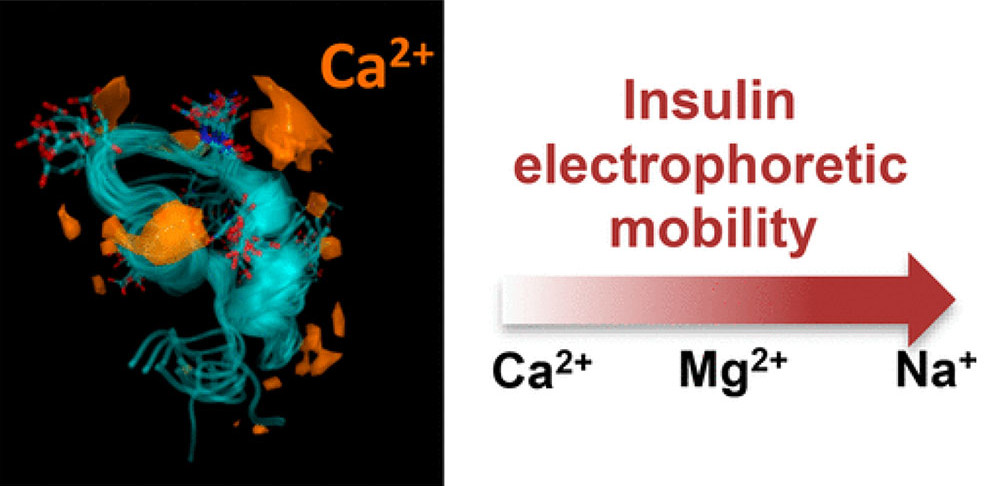
The research team of Pavel Jungwirth from the Institute of Organic Chemistry and Biochemistry of the CAS (IOCB Prague), in cooperation with scientists at the Lund University (Sweden), discovered a new way that peptides or proteins can bind to each other. The results of their research were published in the prestigious scientific journal Proceedings of the National Academy of Sciences of the USA (PNAS).
We know from school that ions or charged groups carrying a charge of the same sign repel each other. In aqueous media, however, this electrostatic repulsion is significantly reduced and can be compensated by other molecular forces.
Scientists from Prague and Lund used this fact to unravel a new binding motif, wherein the positively charged side chains of arginine amino acids bind to each other in the presence of negatively charged terminal groups or side chains of peptides or proteins. Subsequently, they have identified an analogous motif in more than two hundred biologically significant structures in a protein database.
"This newly discovered binding motif will help us to rationalize why the peptides with a high content of arginine easily pass through cell membranes, and how to use this knowledge for designing efficient transport of drug molecules into the cell," says Pavel Jungwirth.
Pavel Jungwirth’s Group built upon their long-term research aimed at understanding the unusual properties of the arginine amino acid, which is sometimes referred to in biochemical circles as the "arginine magic".
Original paper:
Giulio Tesei, Mario Vazdar, Malene Ringkjøbing Jensen, Carolina Cragnell, Phil E. Mason, Jan Heyda, Marie Skepö, Pavel Jungwirth, and Mikael Lund. Self-association of a highly charged arginine-rich cell-penetrating peptide. PNAS 2017, 114 (43), 11428-11433. https://doi.org/10.1073/pnas.1712078114






